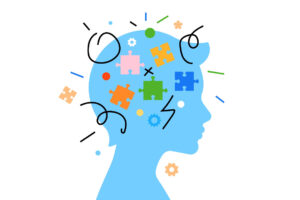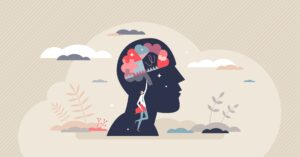
Joyful laughter boosts brain health and reduces stress hormone
Joyful laughter boosts brain health and reduces stress hormone
We are all familiar with the saying, “laughter is the best medicine.” And this motto may not only be a good medicine for the health of your body but also a good medicine for your brain. Joyful or mirthful laughter produces brain wave frequencies similar to those seen among people who reach what is considered the desired “true state of meditation,” according to a new study.
The new research out of the Loma Linda University in Southern California, presented at the Experimental Biology 2014 conference meetings in San Diego on April 27th, 2014, suggests that Humor Associated with Mirthful Laughter (HAML) is gaining increasing attention as a non-pharmacological lifestyle intervention that integrates mind and body to promote greater wholeness, health, and wellness, and offers therapeutic value for alleviating symptoms from a variety of chronic medical conditions.
“Humor Associated with Mirthful Laughter sustains high-amplitude gamma-band oscillations. Gamma is the only frequency found in every part of the brain,” study researcher Lee Berk, DrPH, MPH, of Loma Linda University, said in a statement. “What this means is that humor actually engages the entire brain – it is a whole brain experience with the gamma wave band frequency and humor, similar to meditation, holds it there; we call this being, ‘in the zone.’”
For their research, scientists measured brain activity from nine cerebral cortex scalp areas in 31 participants. Subjects were connected to an EEG monitor as they watched 10-minute video clips that were humorous, distressful, or spiritual in nature. The EEG monitor measured and recorded the power spectral density of all brain wave frequencies from 1 to 40 Hz.
When the participants watched the humorous videos – which provoked Humor Associated with Mirthful Laughter – their brains produced significant gamma wave levels, similar to what you would see when a person meditates. Meanwhile, when they watched the spiritual videos, their brains produced significant alpha brain wave bands, similar to what you’d see when a person is at rest. And when they watched the distressing videos, their brains produced flat brain wave bands, similar to what you would see when a person is detached and does not want to be in a situation, researchers noted.
The findings showed that humor engaged the whole brain, including the entire gamma wave range frequency. Researchers were even able to pinpoint a figure for the optimal laugh: a 30-40 hertz frequency, the same brain wave frequencies seen among people who reach what’s considered the “true state of meditation.”
“When there is mirthful laughter, it’s as if the brain gets a workout because the gamma wave band is in synch with multiple other areas that are in the same 30-40 hertz frequency,” explained Berk. “This allows for the subjective feeling states of being able to think more clearly and have more integrative thoughts. This is of great value to individuals who need or want to revisit, reorganize, or rearrange various aspects of their lives or experiences, to make them feel whole or more focused.”
Since it is well known that laughter can be a stress reliever, the research team wanted to determine whether humor may reduce brain damage caused by cortisol.
Researchers analyzed one group of elderly individuals who had diabetes and another group of elderly people who were healthy. Both groups were required to view a 20-minute humorous video, before completing a memory test that measured their visual recognition, learning ability and memory recall. A third group of elderly individuals were asked to complete the memory test without watching the funny video. The team then compared the results of all three groups. Cortisol levels for all participants were recorded before and after the experiments.
Scientists found that both groups who watched the humorous video showed a significant reduction in cortisol levels, compared with the group that did not watch the video. The groups that watched the funny video also showed greater improvement in memory recall, learning ability and sight recognition, compared with those who did not watch the video. The diabetic group demonstrated the greatest improvement in both cortisol levels and memory test scores.
“It’s simple, the less stress you have the better your memory,” Berk said. “Humor reduces detrimental stress hormones like cortisol that decrease memory hippocampal neurons, lowers your blood pressure, and increases blood flow and your mood state.”
“The act of laughter – or simply enjoying some humor – increases the release of endorphins and dopamine in the brain, which provides a sense of pleasure and reward.” He said that these neurochemical changes in the brain also increase “gamma wave band frequency,” which can improve memory.
“So, indeed,” he added, “laughter is turning out to be not only a good medicine, but also a memory enhancer adding to our quality of life.”













